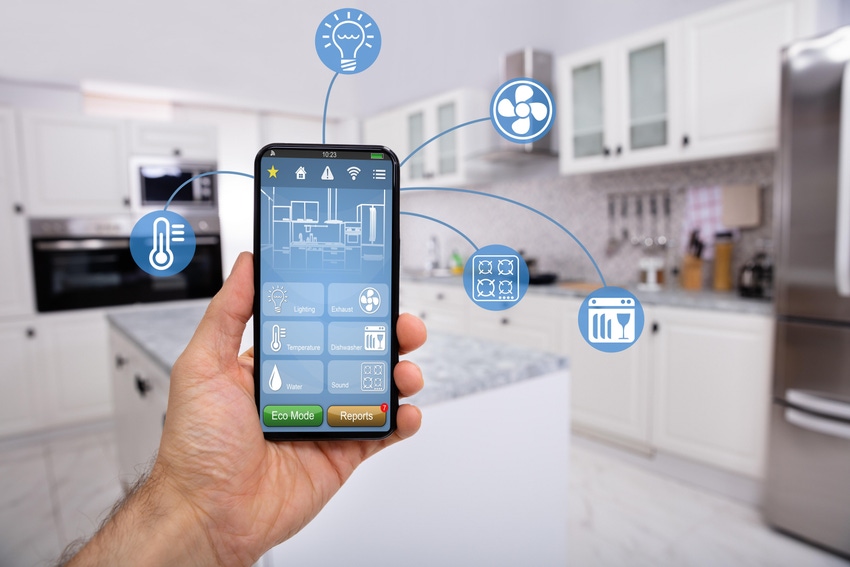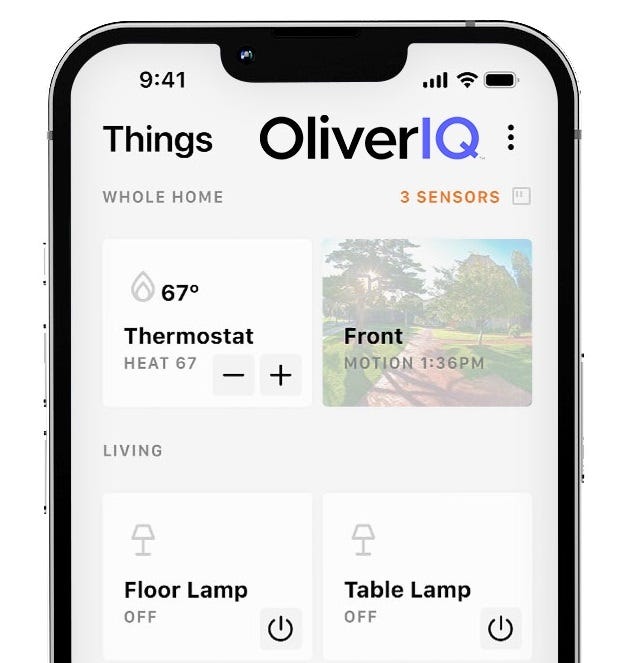OliverIQ pitches smart home-as-a-service to broadband service providers
OliverIQ aims to help ISPs streamline and unify how IoT devices are connected, managed and automated, offering those capabilities as a service. 'The home really needs an IT department,' says the company's co-founder and CTO, Eric Smith.

With broadband subscriber growth slowing down for many service providers including US cable operators, some are looking to management of smart home services and capabilities as an opportunity for new revenue streams and services that will help them gain and retain customers.
Some broadband operators already offer managed Wi-Fi and home security/smart home offerings, though they've had limited success. A prime example is Comcast's Xfinity Home offering, which combines home security with a portfolio of integrated Internet of Things (IoT) products such as connected cameras, thermostats, door locks, lights, and door and window sensors. Cox Homelife is another example. Looking beyond the broadband service provider segment, companies such as ADT, Alarm.com and Vivent also are focused on the smart home and security sector.
Now, startup OliverIQ is looking to advance and expand such capabilities with its smart home-as-a-service (SHaaS) offering, announced in concert with CES 2024 in Las Vegas. Rather than selling its platform at retail and exploring a do-it-yourself model that might prove difficult for the average consumer to install and maintain, OliverIQ is actively pitching its new platform primarily to broadband service operators and other segments of the service provider market.

OliverIQ's smart home as-a-service offering for service providers features a unified app to manage various connected devices in the consumer's home. (Source: OliverIQ)
Focus on consumers
The general concept is to provide a platform that is easy for customers to connect, integrate and automate while also ensuring that various IoT devices, such as door locks, lights, doorbells and cameras, are constantly kept updated and working together. OliverIQ says its platform is also set up for consumers to easily automate processes, such as setting up devices to turn on and off or adjust at the start or end of the day, or while the occupants are on vacation.
And rather than relying on multiple apps for those devices, OliverIQ offers a unified application that can remotely manage and automate the home's various IoT devices.
OliverIQ, which is led by some former founders of Control4 (a high-end home automation company that was sold in 2019 for $680 million), believes that a service-based approach to the smart home will help broadband service providers create stickier products and deliver enhancements that can entice new customers. The company also contends that consumers want a service provider to help handle complicated smart home issues as they arise, such as when Alexa Skills or automation setups for Google Home or SmartThings must be updated while maintaining previous automations.
"It [OliverIQ's platform] is intentionally designed that way because we believe that service and the solutions are inseparable when it comes to the consumer actually having a good experience," the company's CEO, Will West, said. "There's all kinds of DIY and very high-end automation [offerings]. But absent services, you simply don't end with a good result… Consumers just want help with this stuff."
A primary issue for consumers is that IoT device suppliers issue software and firmware updates on a varying basis, and those updates can impact other smart home devices on the home networks, according to OliverIQ co-founder and CTO Eric Smith.
"It breaks stuff. There's a complicated network there between those devices," Smith said. "The home really needs an IT department. You have to tie the service and the technology together… Our job isn't to be the name brand for the consumer. Our job is to make [the ISP] the hero in the eyes of the consumer."
'One-touch simple'
OliverIQ's deployment approach is to run its platform on existing routers or gateways from broadband service providers or to provide a "hub" that runs the smart home. The hub, which costs less than $100, supports a variety of protocols and standards, including Wi-Fi, Zigbee, Z-wave and Matter, among others. It is paired with controller software, backend systems and an app that service providers and their customers can use to manage and automate the devices underpinning the smart home.
"Our job is to let [the consumer] use the devices they want and then make them work together in a best-in-class automation kind of way," Smith said. "At the end of the day, it should be one-touch simple, or even simpler than that for the user/home owner."
If, for example, OliverIQ's platform notices there's been a firmware revision, its service is designed to provide updated drivers from its cloud-based platform.
"Usually within an hour or two we can know what's wrong and have posted a new driver," Smith explained. "Before 95% of the people have gotten the update, we have already fixed it."
Rollouts later this year
OliverIQ isn't revealing its pricing options for partners but said the offering includes 24/7 tech support.
The company also hasn't announced any deals with broadband service providers or how much capital it has raised to get off the ground. But OliverIQ expects to start rolling out its platform with ISPs during the first half of 2024, Smith said.
About the Author(s)
You May Also Like












